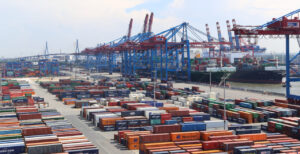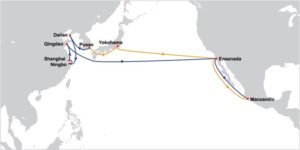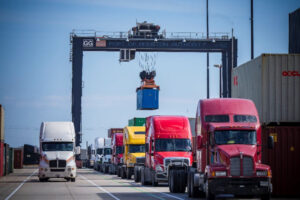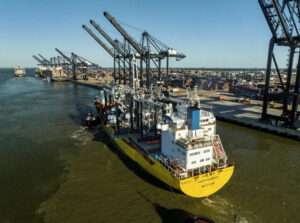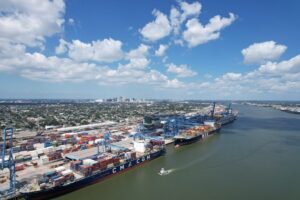Blockchain platforms are on the rise – but one nation which can look benefit most from its use in the supply chain sector is Malaysia.
Malaysia’s congested inland network and critical importance for cargo flows through East Asia opens up major opportunities for digitisation to improve safe and secure transfer of vital datasets.
What is blockchain?
A blockchain is a distributed, immutable growing list of transactional records.
Stored in blocks, chained and secured using cryptography, the inter-connected network provides companies with an encrypted and cost-efficient platform to share data on shipping instructions, import documentation, and invoicing, amongst other key transactional features.
Whilst still in relatively early stages of use in maritime and logistics trade, the benefits for port logistics are prodigious, ranging from reduction in cost and operations time to increases in security, and increased cross-sector insights into cargo movement.
Is Malaysia a major maritime nation?

During the Malaysia Ports & Maritime Week, Joe Chai, Solutions Architect at ProximaX, said that the Royal Malaysian Customs Department has already signed up to the TradeLens blockchain platform created by IBM and Maersk.
“Blockchain technology connects stakeholders not currently connected. Blockchain can transform port processes in documenting, verifying, and recording each event in the supply chain,” Chai said.
“TradeLens is a consortium network – it is a private network, and you must be a member in order to access the platform. They want to resolve some of the issues in supply chain management, especially for a customs department. There is a lot of potential for Malaysia companies and franchises to participate.”
PTI is proud to announce its partnership with the Malaysian Ports & Maritime Week 2021!
Inland digitisation
From Chai’s experience, inland trucking and intermodal sectors in Malaysia are currently hampered from embracing blockchain technologies due to siloed data.
Different formatting and standardisation of a trucking operator compared to a shipping line, for example, can limit the amount of transactional data exchanged in a logistics chain, limiting visibility of cargo flow.
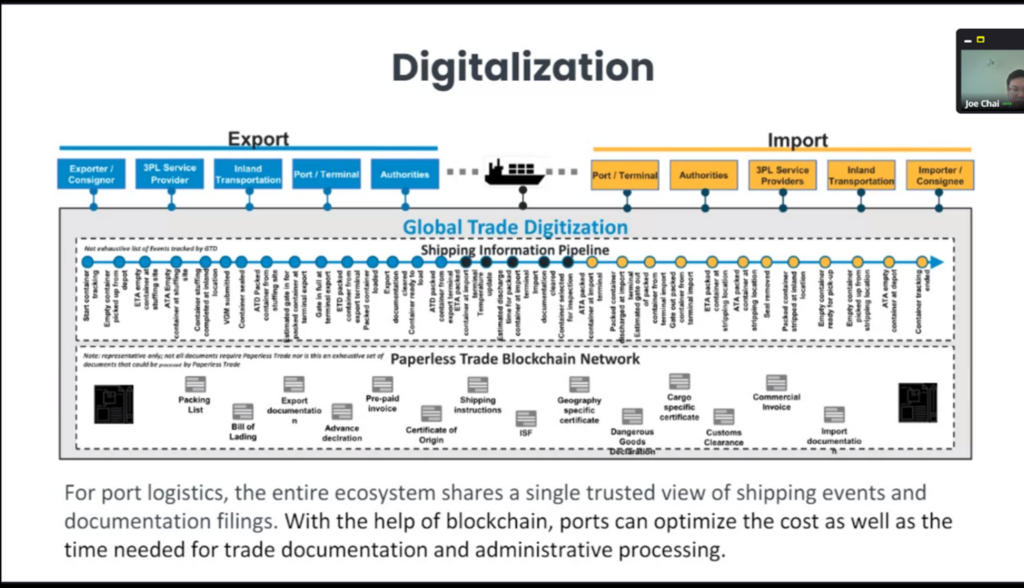
“The challenges for inland trucking and intermodals sectors are silo data sitting in existing system and access to connectivity. I believe the ports and terminals have the connectivity to adopt blockchain platforms,” he said.
Chai continued that blockchain platforms can enhance interconnectivity by integrating with existing Port Community Systems (PCSs) as an additional level of interconnectivity riding on top of existing systems.
“The ideal condition is to have one blockchain platform for all parties. But it might create another problem which is the privacy/access of the data. So it can be segregated to multiple platforms for data exchange.
“Different communities and consortiums can decide what data they want to share and what data for external parties,” Chai explained.


